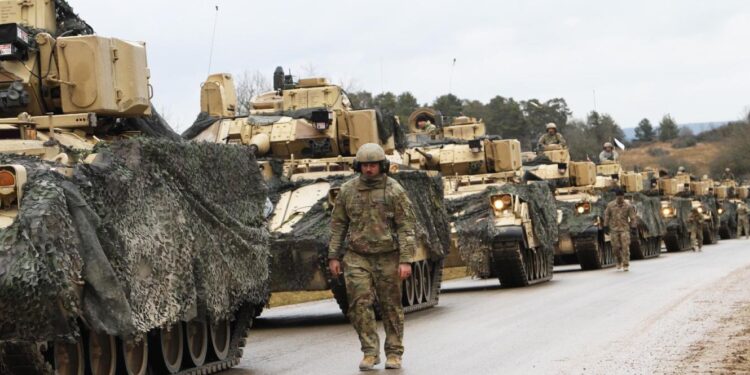US Expands Military Footprint in the Middle East Amid Rising Regional Tensions
In a strategic recalibration, the United States is markedly amplifying its military presence across the Middle East as regional tensions intensify. Against a backdrop of shifting global power balances, U.S. officials emphasize concerns over security vulnerabilities, potential conflicts, and the imperative to maintain stability in this geopolitically critical zone. Recent troop deployments and strengthened defense collaborations with regional partners underscore Washington’s resolve to protect its interests—particularly those tied to vital energy corridors and counterterrorism operations. With volatility escalating and complex challenges emerging on multiple fronts, this enhanced military posture prompts important questions about its broader impact on U.S. foreign policy and Middle Eastern equilibrium.
Strategic Drivers Behind US Military Expansion in the Middle East
The surge in American military assets throughout the Middle East reflects a nuanced strategy aimed at addressing evolving geopolitical realities rather than mere force projection. This multifaceted approach centers on deterrence, readiness for rapid response, and deepening alliances with key regional actors. The principal objectives guiding this buildup include:
- Containing Iran’s Regional Ambitions: The U.S. seeks to limit Tehran’s influence by disrupting support networks for proxy militias that destabilize neighboring states.
- Securing Vital Maritime Chokepoints: Protecting crucial shipping lanes such as the Strait of Hormuz remains paramount for uninterrupted global energy flows.
- Bolstering Gulf Cooperation: Strengthening defense ties with Gulf Cooperation Council (GCC) members enhances collective security against shared threats.
This expanded footprint inevitably triggers diverse reactions from local powers—potentially reshaping alliances while heightening friction points across an already volatile landscape. Moreover, these developments intersect with broader great-power competition; China’s Belt and Road Initiative continues to deepen Beijing’s economic foothold in the region, complicating Washington’s strategic calculus.
| Key Factor | Potential Consequences |
|---|---|
| Evolving Military Coalitions | The emergence or fragmentation of regional partnerships affecting balance of power. |
| Energy Market Stability | Perturbations leading to price swings impacting global economies. |
| Civilian Humanitarian Impact | An increase in displacement crises exacerbating social unrest. |
Impact on Regional Stakeholders: Allies’ Assurance vs Adversaries’ Calculations
For America’s allies—especially within Saudi Arabia, United Arab Emirates (UAE), Israel, and Jordan—the bolstered U.S. presence serves as a tangible demonstration of commitment amid rising threats from hostile entities like Iran-backed groups or extremist factions operating locally. Enhanced American capabilities translate into improved joint operational readiness against terrorism and other destabilizing forces.
Conversely, adversarial actors perceive this shift as provocative escalation prompting tactical adjustments:
- Tensions Intensify: Heightened risk of confrontational incidents between opposing forces increases instability risks.
- Sponsorship of Proxy Conflicts: Iranian-aligned militias may escalate asymmetric warfare tactics targeting coalition interests.
- Diplomatic Realignments: Opposing states could forge closer ties among themselves—including Russia—to counterbalance U.S.-led initiatives.
| Country/Entity | Effect Due To US Military Presence |
|---|---|
| Saudi Arabia | Expanded intelligence sharing & joint exercises enhancing defensive posture |














